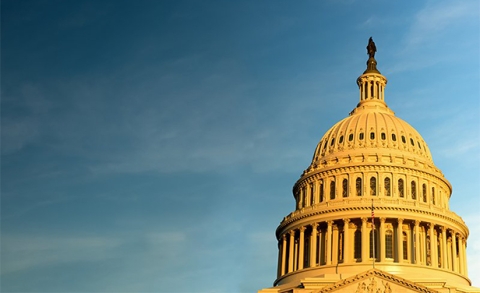Groups Urge Congress to Pass “Save Hotel Jobs Act”

The pandemic has resulted in nearly 200 hotels closing their doors permanently in New York City alone. New congressional legislation seeks to save many of the jobs lost in closures there and across the country.
U.S. Senator Brian Schatz (D-Hawaii) and U.S. Representative Charlie Crist (D-Fla.) have introduced the “Save Hotel Jobs Act” to support hotels and hospitality workers as the industry seeks to rebuild from COVID-19’s damage. The American Hotel & Lodging Association reports business travel is down 85% and is not expected to make a full recovery until 2024.
In total, 3.1 million jobs directly tied to leisure travel and hospitality have yet to return, comprising more than one-third of all unemployed Americans, according to the Bureau of Labor Statistics. The unemployment rate remains 330% higher than the rest of the country.
On April 28, AHLA and UNITE HERE, the largest hospitality workers union in North America (representing more than 300,000 employees), announced a partnership to support the legislation.
“Every day, hotels are closing for good, and hardworking, loyal employees are sadly being let go,” said Chip Rogers, president and CEO of AHLA. “No industry has been more affected by the pandemic than hospitality. Government-issued travel bans and restrictions, which are meant to slow the spread of the virus, have wiped out 10 years of job growth in our industry. Now, millions of jobs and thousands of businesses are at risk—not just hotels, but the many businesses and workers hotels also support in the community. Congress must step up now to support the hotel industry workforce with targeted relief.”
Among the highlights of the “Save Hotel Jobs Act” are:
- Direct payroll grants will be utilized for payroll and benefits expenses for workers. The legislation would also require grantees to give laid-off workers recall rights to ensure those who lost their hotel jobs due to the pandemic are able to get back to work.
- Providing a Personal Protective Equipment Tax Credit to promote worker safety measures, which would allow for a payroll tax credit for 50% of costs associated with the purchase of personal protective equipment, technology designed to reduce the impact of the pandemic, increased testing for employees and enhanced cleaning protocols that do not negatively impact the level of work for housekeeping staff.
Hotels near beaches, lakes and other leisure hot spots will be among the earliest to recover fully, while urban properties reliant on business travel for company meetings, seminars and training will likely lag behind. Urban hotels reported a 66% decrease in room revenue in January 2021 compared to early 2020, prior to the pandemic’s outbreak in this country. The lost cash flow expands when calculating F&B and other finances group business brings.
Without incoming cash, hotels have let workers go and many were forced to close for good, including venerable properties like Marriott Wardman Park, a mainstay in Washington, D.C.’s Woodley Park neighborhood since 1928.
According to recent reports, New York City has seen one-third of its hotel rooms—more than 42,000—wiped out by the COVID-19 pandemic, with nearly 200 hotels closing permanently.
“The pandemic has left millions of hotel employees out of work and many more struggling to get by with less hours – they need help,” Schatz said. “Our bill creates a new grant program that will bring back hotel jobs, pay workers and help our economy recover.”
Don’t miss any event-related news: Sign up for our weekly e-newsletter HERE and engage with us on Twitter, Facebook, LinkedIn and Instagram!


Add new comment